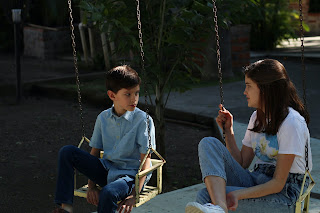By Jessica Pierson RussoThe intent of positive youth development is to place young people at the heart of what we do. But what does this look like? Being youth-centered starts with thinking of young people in terms of their uniqueness and humanity.
How we think about the youth we interact with is reflected in our actions. For instance, if we think about them as damaged, we are likely to treat them that way. If we think about them as privileged, we are likely to treat them that way too. Our natural tendency as human beings may be to categorize others based on their circumstances. So, if a young person is in foster care, or their experiences are influenced by historical trauma, we may be tempted to view them through the lens of those circumstances. Likewise, if they have two well-paid, able-bodied parents at home, we may also view them through the lens of a certain type of experience we envision them having. This type of assumptive thinking can prevent us from really seeing and understanding the youth we work with.
So what can we do?
Here are some tips that may help:
- It’s fine, and even smart, to get to know more about a young person’s background and experiences. But don’t stop there. Begin to find out what those pieces of the person’s life mean to them. You may be surprised to learn that the thing you thought would define them actually doesn’t. Let them define themselves to you.
- Learn more about what they consider to be their cultural background. Culture is a tricky and complicated thing, and we all have multiple cultural influences, whether or not we realize it. For instance, I consider my own cultural identity to include my race, my nationality, my parents’ nationality, my gender, my family, my upbringing in a musical household, and the town I grew up in, among other things. Youth are just beginning to explore their own cultural identity, as you may be. But culture influences our beliefs, values, and ways of being, which are all important parts of how we identify both our humanity and our uniqueness. Engaging youth in activities such as the identity lesson from WeConnect or the Identity Wheel from Youth Aspirations is a great way to help youth (and you) get to know their cultural identity.
- Allow youth to drive their own learning from their unique cultural perspective. This doesn’t mean providing learning experiences we think they need but rather providing them experiences that will be most meaningful to their context by asking them what those experiences should be. For instance, one 4-H club talked about what things they wanted to learn about in the program, based on the things that are most important to them. One young person was worried about her education because she is doing badly in her Language Arts class. She wondered if they could do some writing projects together. Another person had recently had a run-in with police that left him feeling racially profiled. He was interested in doing a project about how police could build better relationships with youth in his neighborhood.
While a young person’s home situation certainly may influence their way of being and even identity, who are we to decide that identity for them? And what judgements are we making based on what we perceive to be a person’s identity, whether it be in terms of their background, or their race, gender, sexual orientation, religion, or nationality? In order to see each young person’s uniqueness and humanity, we need to truly put them in the center by listening to understand who they are.
What do you think? How do you strive to be more youth-centered?
You are welcome to comment on this blog post. We encourage civil discourse, including spirited disagreement. We will delete comments that contain profanity, pornography or hate speech--any remarks that attack or demean people because of their sex, race, ethnic group, etc.--as well as spam.

What a great post! It's a far cry from the all too typical teaching approach of "let me tell you what you need to know (or how to be)". I hope your understandings are representative of a growing awareness today. Thanks so much!
ReplyDeleteThanks, Mary Helen. I am definitely always growing my own understanding and awareness about the most effective "way of being" with young people.
Delete